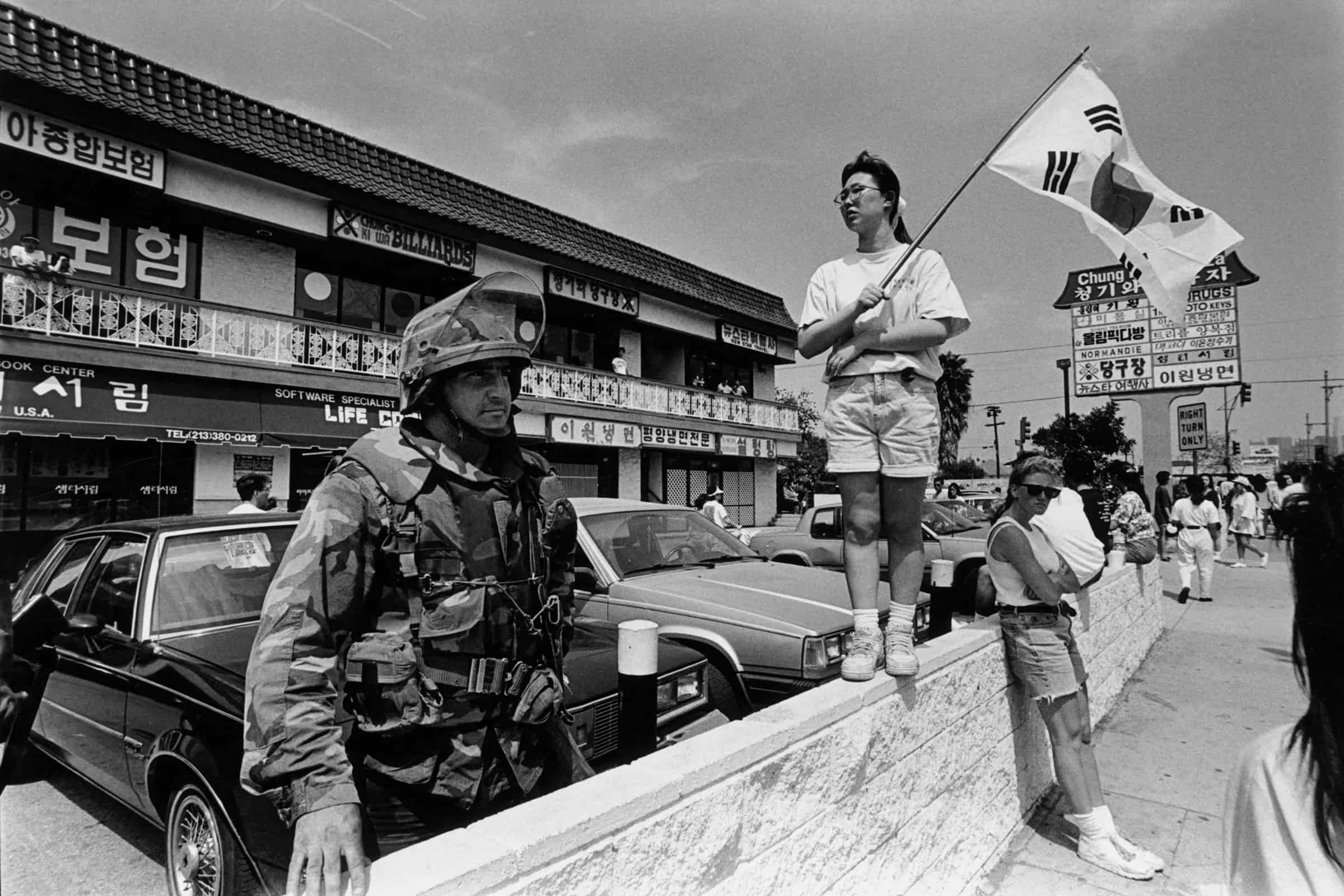ASIAN AMERICAN COMMUNITIES
Korean Americans

00:00

Have their ongoing ties with Korea impacted the lives of Korean Americans?
Chapter objectives
- Learn about why Korean Americans immigrated to the US and how their experiences in the US have changed over time.
- Understand the historical relationship between Korea and the US that has shaped Korean American experiences.
- Explore how immigrants continue to face a diverse array of challenges in their country of resettlement.
Korean Americans have endured different struggles since the mid twentieth century, navigating their sense of identity in the US. During World War II, Korean Americans supported US entry into the war, believing that defeating Japan would lead to an independent Korea. However, the Korean War broke out shortly after, dividing Korea into two states at the 38th parallel. The Korean War resulted in thousands of Korean adoptees that arrived in the US, an adoption program that has had lasting effects for Korean Americans. Later, the events of the 1992 Los Angeles uprising (or Sa I Gu in Korean) saw the police abandonment of Korean American businesses and massive uninsured property losses, leading Korean immigrants to invest in mainstream politics and media to avoid a recurrence. Today, the global popularity of South Korean media and music since 2000 has advanced general acceptance of all things Korean, yet Korean Americans still face anti-Asian racism and violence. This chapter overviews key experiences of Korean Americans that have shaped this complex community into the one it is today.
Modules in this chapter
Overview
Korean Americans during World War II and the Korean War
Adoptees
Post-1965 Korean America and 1992 Los Angeles
Korean Americans and Hallyu since 2000
Overview
Korean Americans during World War II and the Korean War
Adoptees
Post-1965 Korean America and 1992 Los Angeles
Korean Americans and Hallyu since 2000
Chapter Sources
“54 U. S. Couples Reach Korea to Get Orphans,” Chicago Tribune (1963-1996), November 26, 1963.
Abelmann, Nancy and John Lie. Blue Dreams: Korean Americans and the Los Angeles Riots. Harvard University Press, 1997.
“Adopter of 8 Koreans Off to Get 200 More.” New York Times, March 26, 1956.
Bates, Karen Grigsby. “How Koreatown Rose From The Ashes Of L.A. Riots.” All Things Considered, April 27, 2012. https://www.npr.org/2012/04/27/151524921/.
Branco, Susan F., Jae Ran Kim, Grace Newton. “The Adoptee Consciousness Model: Integration with Family Counseling Theory and Practice.” The Family Journal (2024). https://doi.org/10.1177/10664807241290244.
Kim, Suwan. “The New Korean Wave in the Middle East and Its Role in the Strategic Approach to Medical Tourism in Korea.” Kritika Kultura 29 (2017): 258-271.
Kim, Wun Jung. “International Adoption: A Case Review of Korean Children.” Child Psychiatry and Human Development 25, no. 3 (1995): 141-154.
Lee, Hye-Kyung. “The Korean Wave inside out.” In Cultural Policy in South Korea: Making a New Patron State. Routledge, 2018.
Lee, Jieun. Unsettling Acts: Performing Transnational Adoption. The Ohio State University Press, 2025.
Lee, Mary Paik. Quiet Odyssey: A Pioneer Korean Woman in America. University of Washington Press, 1990.












